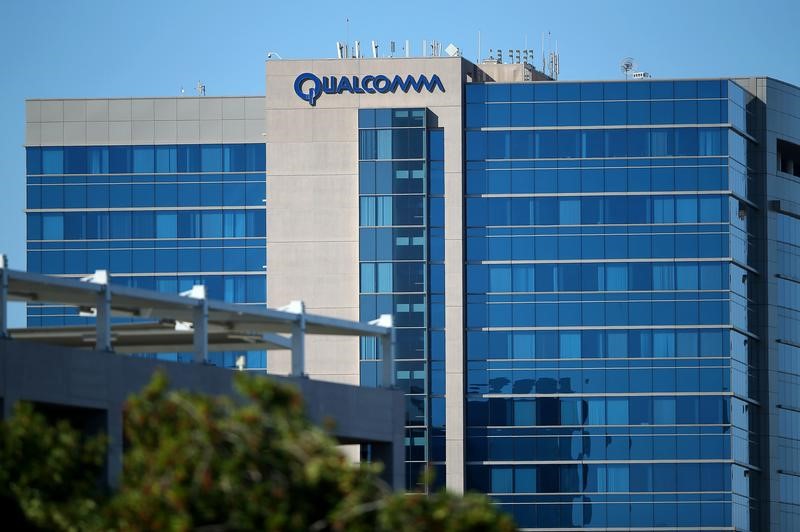By Stephen Nellis
SAN FRANCISCO (Reuters) - Apple Inc's new legal assault on Qualcomm in the United States and China reflects its conclusion that regulators are unlikely to put an end to what it considers the chip maker's unfair business practices, analysts said.
Apple (O:AAPL) has long objected to Qualcomm's practice of charging for the "modem" chips that help phones use wireless networks data plans and its demands for a license fee based on the total price of the phones. Qualcomm (O:QCOM) was the original inventor of a number of key wireless technologies.
The U.S. Federal Trade Commission sued Qualcomm over the practice on Jan. 17. But earlier this week, U.S. President Donald Trump named FTC Commissioner Maureen K. Ohlhausen to head the regulatory agency. Ohlhausen had vigorously opposed the FTC's lawsuit.
" (W)e have a hard time seeing the case go forward with the dissenting FTC commissioner slated to become the head of the FTC," Morgan Stanley (NYSE:MS) analyst James Faucette wrote in a note to investors on Wednesday. "If the FTC abandons its case, it certainly would not be helpful to Apple, but we would guess that Apple will probably still try to push the issue."
In the Qualcomm case, Ohlhausen broke her usual practice of not commenting on her dissenting votes, saying the lawsuit was "based on a flawed legal theory ... that lacks economic and evidentiary support" and "fails to allege that Qualcomm charges more than a reasonable royalty."
The FTC did not immediately respond to a request for comment.
In its U.S lawsuit, filed on Jan. 20, Cupertino, California-based Apple alleges Qualcomm withheld $1 billion in rebates and other payments owed to Apple as a result of a Korean Fair Trade Commission investigation into the San Diego-based chip maker. That probe led to a $853 million (677 million pouns) fine for Qualcomm but no demand for changes to its business model.
"For many years Qualcomm has unfairly insisted on charging royalties for technologies they have nothing to do with," Apple said in a statement the same day it filed the lawsuit.
But the intent of the suit is to challenge Qualcomm's full-device royalty model. "They're very clearly trying to attack the business model - that's crystal clear," said Stacy Rasgon, an analyst with Bernstein.
Apple also filed two lawsuits against Qualcomm in China this week. Despite fining Qualcomm $975 million in 2015, Chinese antitrust regulators did not take immediate aim at the chip maker's business practices either.
On its earnings call on Wednesday, Qualcomm said it would defend its business model in courts around the world.

"There has been no sudden change in the law to make this practice improper, and it remains the most efficient and fair method of licensing," Qualcomm President Derek Aberle said.